by Ethan SoffeDuring Southampton Film Week, Solent University hosted a special screening of BLADE RUNNER 2049 (Denis Villeneuve 2017). The screening was accompanied with a talk by Professor of Film and Cultural Studies Will Brooker, who discussed his latest work: “The World Is Built on a Wall: Deconstructing Blade Runner 2049. In his talk, Brooker critically discussed the film, which is primarily centred around boundaries and maintaining order in a futuristic dystopian society. This was a captivating and insightful event and Brooker’s evaluation offered a fresh new perspective on the film, enhancing the viewing experience that followed.
Two of Brooker’s key arguments were how the film represents social hierarchy and order and how it symbolises the concept of “post-truth” throughout the narrative. An example of this is the idea of the boundaries of fact and fiction preserving truth and maintaining dominance within the film’s dystopian order. Brooker also examined how the film deals with the manipulation of facts to secure these societal boundaries. The plot of BLADE RUNNER 2049 concerns a long-hidden secret that is discovered and has the potential to significantly alter society. Brooker identified an extensive archive of records featured in the film and the crucial plot of concealing the past. He went on to draw parallels with these aspects and the current political climate, including Donald Trump’s fake news claims and Brexit. Brooker highlighted his main arguments by discussing his idea that the past is an imperfect copy. He explained that the past never provides every answer to specific events; despite efforts of preservation, one piece is always missing. He emphasised this by demonstrating K’s personal odyssey of locating one of his memories as a child and his goal of seeking closure over his past. Moreover, he argued that 2049’s predecessor - BLADE RUNNER (Ridley Scott 1982) - is not a reliable text, due to the past’s incompletion. BLADE RUNNER 2049 with Professor Will Brooker was a true highlight of Southampton Film Week 2019. It offered a unique perception of BLADE RUNNER 2049, which undoubtedly expanded and developed a more critical understanding of the film’s themes in relation to our current societal and political context. Having a film academic critique a narratively complex and dense film such as BLADE RUNNER 2049, along with a Q&A, made for a thoroughly engaging evening.
0 Comments
by Ethan SoffeHalfway through Southampton Film Week 2018, the “Short Story Cinema” event aimed to demonstrate the significance of short form storytelling. Comprising seven short fictions and documentaries, the event was a particularly engaging and engrossing experience that showcased what a short film can accomplish.
The seven shorts screened were: short drama SAFE SPACE (Ben S Hyland 2018), poetic documentary LETTERS TO BRITAIN (Rosie Baldwin 2018), science fiction comedy TAKING DELILAH (Rachel Stephens 2018, pictured), racial drama FARSIDE (Ash Morris 2017), reflexive documentary LET ME BE BRAVE (Asten Holmes-Elliott 2016), romantic drama ME AND YOU: A LOVE STORY (Sorcha Anglim 2015) and coming-of-age drama THE NIGHT THE WIND BLEW (David Alamouti 2018). The majority of the films offered a social and political commentary that advanced their narratives and reinforced their principal messages. SAFE SPACE centres on a social worker Sarah (Rebecca Grant) and her relationship with her client Amne (Marlene Madenge), a victim of human sex trafficking, as it unfolds over a nine-month period. LETTERS TO BRITAIN explores various pensioners recounting their experiences of significant moments in history. FARSIDE, one of the standout films of the evening, deals with a Syrian refugee’s relationships with two siblings who have contrasting political views. LET ME BE BRAVE investigates the presence of transgender people in sport. Containing this political commentary in a short form strengthened their impact. The Short Story Cinema event not only showcased timely political stances, it additionally demonstrated how much could be achieved in such a short amount of time. TAKING DELILAH, ME AND YOU: A LOVE STORY and THE NIGHT THE WIND BLEW are short stories with great substance. TAKING DELILAH presents a couple’s troubled relationship and their dog through the sci-fi genre. ME AND YOU: A LOVE STORY, another standout film of the event, depicts a couple’s entire relationship from the first date to their break-up. THE NIGHT THE WIND BLEW deals with a young boy’s connection with his brother, whilst simultaneously exploring themes of identity and the challenges of early adolescence. Collectively, the films were impressive to experience, exhibiting sophisticated and carefully constructed narratives. Short Story Cinema was a truly unique experience. The programme offered innumerable benefits for not just the filmmakers presenting their distinctive capabilities in storytelling but also for the audience. Having the filmmakers present for a Q&A afterwards supported the evening’s value as they discussed their specific modes of filmmaking and imparted advice for future filmmakers. Moreover, their presence made for an interactive and encouraging evening. The Southampton Film Week event was a remarkable way of introducing new filmmakers and their stories but also, notably, sharing with the audience something creative and inspiring. This year's nominees and winner have been announced!We had the pleasure of presenting the DIEGESIS Award at the Solent Film Awards (SoFiAs) last night. It is an award that acknowledges demonstrable creativity and critical thinking in the practical skill of film and television writing and so many impressive writers have been involved with the magazine this year that it was incredibly difficult narrowing down the shortlist, let alone deciding the winner.
The three nominees - Brennan Backs, Hannah Lake and George Lee - have demonstrated a commendable commitment to the development of their writing this last year in both their writing for the magazine and in their critical writing during their undergraduate studies. Their writing is continually a pleasure to read and their writing reveals a clear and engaging voice. Congratulations to the winner of the Diegesis Award 2018 - Hannah Lake - and the two runners up: Brennan Backs and George Lee. Be sure to check out their writing and keep your eyes peeled for the great writing that is sure to come in the future. For National Garden Week, we've compiled some of our more unconventional garden-related film reviews for our green-fingered readers.30 April - 6 May 2018BACK TO THE GARDEN (Jon Sanders 2013)"A thoughtful investigation of life, love and death that engages with a wealth of impressions and questions often ignored in mainstream storytelling." Read Laurence Russell's review and watch our interview with the filmmaker Jon Sanders here. A FIELD IN ENGLAND (Ben Wheatley 2013)Wheatley's "multi-layered, hybrid genre productions signify that he has nevertheless become a force to be reckoned with in the world of British independent film." Read Sam Hall's review here. WALL-E (Andrew Stanton 2008)"Cinema should following in the caterpillar tracks of WALL-E's little robot and find value in environmental insights". Read Lucy Ravenhall's article here and Alice Stansfield's here. THE WICKER MAN (Robin Hardy 1973)"THE WICKER MAN deconstructed an idyllic British countryside and heritage by peeling away the layers of what appears natural to reveal a darker side".
Read Sam Hall's article here. With some huge achievements and huger milestones, the Oscars 2018 had some surprises up its sleeve.Wednesday 14 March 2018by REUBEN MUIRAs predicted, the Oscars performed as planned, all the frontrunners took home awards, with THE SHAPE OF WATER being the big winner with four awards. Notable awards went to British cinematographer Roger Deakins whose Oscar for BLADE RUNNER 2049 was his first after 14 previous nominations; James Ivory, who won the Oscar for Best Adapted Screenplay for CALL ME BY YOUR NAME, has became the oldest Oscar winner in any category at the age of 89; Jordan Peele is the first African American to win an Oscar for Original Screenplay for GET OUT; and Guillermo Del Toro’s win for Best Director has put him alongside the other members of the so called “Three Amigos” (including Alejandro Iñárritu and Alfonso Cuarón) and has made him the fourth Mexican to win the award in five years. MUDBOUND and THE POST failed to secure a win but the biggest loser was LADY BIRD, which caught some traction in recent months due to the growing #MeToo/#TimesUp movement.
However, while THE SHAPE OF WATER’s win for Best Picture was expected, it should not be forgotten how unusual this win is and how it could impact the future of awards season. Horror, action, fantasy and science fiction genre films are often overlooked by the Oscars. But in recent years the nominations have shown a change in perspective. MAD MAX FURY ROAD and THE MARTIAN were big contenders three years ago, as was ARRIVAL last year and GET OUT and THE SHAPE OF WATER this year. The latter has now become the first fantasy film to win since THE LORD OF THE RINGS: THE RETURN OF THE KING in 2004 and its win could signal an opportunity for more genre fare to also achieve Academy Award success. Of course, the film still contains a lot of traditional Oscar elements, which undoubtedly made it easier for voters to support it. But the opportunities its win has opened up are undeniable and genre filmmaking might finally get the awards recognition it often deserves. As for the ceremony itself, it was as average as it could be. Jimmy Kimmel was a fine host but it did feel like he was trying too hard. The most egregious part of the ceremony was when Kimmel took a group of celebrities across the road to surprise unsuspecting cinemagoers. Instead of laughs, the stunt produced groans and felt somewhat obnoxious. Frances McDormand’s acceptance speech for Best Actress for THREE BILLBOARDS OUTSIDE EBBING, MISSOURI garnered the most amount of news coverage following the event. Asking all the female nominees in the auditorium to stand, she highlighted how they all have stories to tell and now is the time to make them. The speech has definitely stuck a chord and has added to the ongoing conversation of diversity in film. This year has shown that traditional Oscar fare needs to up it game. THE POST is an interesting case in point. Entering the race with prestige talent and critical acclaim, so many expected it to dominate the Oscars. But very quickly people turned against it, for the exact reason people thought it would be successful; it is too conventional, it has the message but it is not explored in an innovative way. Who knows what Spielberg could have achieved if he had worked on it for a year longer, how he could have made the story more prevalent or made the drama more powerful. The race is wide open again but we will have to wait and see if these wins and the political discussion do have an impact. Who were the big winners and what does it mean for the Oscars?Thursday 22 February 2018by REUBEN MUIRThe 2017 Awards season is close to its grand finale and the ending is looking more and more predictable, especially with the results of the BAFTA Awards. THREE BILLBOARDS OUTSIDE EBBING, MISSOURI (2017) was the big winner with five wins, including Best Film, Actress, Supporting Actor and Original Screenplay. THE SHAPE OF WATER (2017) had three wins for Best Director, Original Score and Production Design.
These wins prove the two films remain the unchallenged frontrunners going into the Oscars and now the chances of an underdog challenge have slipped. The four acting categories awarded their respective frontrunners, Gary Oldman for DARKEST HOUR (2017), Frances McDormand and Sam Rockwell for THREE BILLBOARDS and Allison Janney with I, TONYA (2017) all of whom are first time BAFTA winners. With these victories they might as well prepare their Oscar speeches. Another notable winner was Roger Deakins who won his fourth BAFTA for cinematography on BLADE RUNNER 2049 (2017) and looks set to finally win his long overdue Oscar after 14 nominations. An unusual statistic is that THREE BILLBOARDS not only won Best Film, it also won Best British Film and no film has achieved this since THE KING’S SPEECH (2010). and A MAN FOR ALL SEASONS (1967) before that. The win for Best British Film is odd as it would be expected that the voters would try and award a smaller and equally acclaimed film like PADDINGTON 2 (2017) or GOD’S OWN COUNTRY (2017). What this double win proves is that the British Academy have thrown their weight behind McDonagh’s film. However, THREE BILLBOARDS has not yet got the Best Picture Oscar in the bag. The BAFTAs used to be a good indicator of what would go on to win Best Picture at the Oscars - between 2000 and 2013 they have had the same result eight times out of 13 - but since 2013 the BAFTAs have gone a different way to the Oscars. So, THE SHAPE OF WATER may well still have the edge over THREE BILLBOARDS. Some notable losers on the night were LADY BIRD (2017), THE FLORIDA PROJECT (2017) and GET OUT (2017), which all failed to get any awards. Other big contenders like PHANTOM THREAD (2017), CALL ME BY YOUR NAME (2017) and DUNKIRK (2017) all disappointed with single wins. The underperformance of DUNKIRK might well be the nail in the coffin for any recognition outside of the technical awards at the Oscars and therefore Nolan will again lose out on his well-deserved Best Director award. However, it might not be game over for GET OUT or LADY BIRD as both seem to have much stronger supporters in the US and, with the continuing #TimesUp/#MeToo movement, LADY BIRD could still surprise. #TimesUp and #MeToo featured prominently at the ceremony, with many of the attending women wearing black in protest. The matter continues to dominate and has become the political issue of this awards season. Considering the impact the #OscarsSoWhite controversy had, a response from the Oscars should be expected. Now the dust has settled after the recent nominations, which films are likely to be rewarded by The Academy?Thursday 8 February 2018by REUBEN MUIRAt the end of last year, many news outlets were saying this was sure to be an unpredictable awards season, especially when compared to last year when LA LA LAND (2016) and MOONLIGHT (2016) had made themselves clear frontrunners. But by now it is clear what way most of the awards are swinging. THE SHAPE OF WATER (2017) leads with 13 nominations, closely followed by DUNKIRK (2017) with eight and THREE BILLBOARDS OUTSIDE EBBING, MISSOURI (2017) with seven. DUNKIRK was considered the original frontrunner for awards season back in the summer but unfortunately seems to be losing traction recently. It will surely dominate the technical awards and potentially the Best Director award. But it does seem to have become a two-horse race between THE SHAPE OF WATER and THREE BILLBOARDS, with the former being an unusual frontrunner. The Oscars have rarely favoured fantasy, especially a fairy-tale love story, and the latter being very prescient with the #MeToo movement but has been subject to some controversy over its racial politics.
It would not be the Oscars without some surprises. Paul Thomas Anderson’s PHANTOM THREAD (2017) had received little attention outside of Daniel Day Lewis’s performance but has racked up six Oscar nominations including a Best Director and Best Picture nomination. While it is unlikely to unseat any of the already predicted winners, this does raise the profile of a film that has mostly flown under the radar. Another surprise was the underperformance of THE POST (2017), a film that Steven Spielberg, Meryl Streep and Tom Hanks reportedly rushed into production as they felt it was a story that needed to be told now. The film looked like it would dominate the awards season. But after receiving no nominations at the BAFTAS it has only received two Oscar nominations: Streep for Best Performance by an Actress in a Leading Role and Best Picture. So despite the anti-Trump message, it has failed to connect with voters. Other films that received little to no nominations were WONDER WOMAN (2017), THE FLORIDA PROJECT (2017), MOLLY'S GAME (2017) and THE BIG SICK (2017). However, the key thing that stands out is diversity. The #MeToo movement exploded at the end of last year and heightened the call for gender equality across the film industry. It delighted many when Greta Gerwig became only the fifth female Best Director nominee for her coming-of-age drama LADY BIRD (2017), following Lina Wertmüller for SEVEN BEAUTIES (1977), Jane Campion for THE PIANO (1994), Sofia Coppola for LOST IN TRANSLATION (2004) and a win for Kathryn Bigelow for THE HURT LOCKER (2010). Other key milestones were that Rachel Morrison became the first woman to ever be nominated in the category of Best Cinematography for the film MUDBOUND (2017) and Jordan Peele became the fifth black Best Director nominee for GET OUT (2017), following John Singleton for BOYZ N THE HOOD (1991), Lee Daniels for PRECIOUS (2009), Steve McQueen for 12 YEARS A SLAVE (2013) and Barry Jenkins for MOONLIGHT (2016). It is no surprise that politics has once again taken centre stage at the Oscars. Women-fronted films like LADY BIRD, THE SHAPE OF WATER, THREE BILLBOARDS and I, TONYA (2017) stand out this year, as do films focusing on race like GET OUT and MUDBOUND. Now begins the month of anticipation until we witness who is crowned on Oscar night. While many of the winners already seem clear, the Oscars would not be complete without some surprises on the night. A diverse display of talent was evident at this year's SFW annual shorts screening and awardsSaturday 18 November 2017by BRENNAN BACKSThis year, 23 shorts were nominated as part of Southampton Film Week’s Shorts competition across three different categories: documentary, fiction and artist film. The films came from all over the world, including submissions from France, Iran and the US as well as regional submissions from the UK’s south coast. This diversity allowed for a dynamic and thought-provoking two-hour compendium of short film craft.
A NAME THAT I ADMIRE (directed by Sam Smartt) came out on top in the documentary category and also picked up the Michael Fuller Award for Best Film. The film looked at a dairy farmer in West Virginia, USA, delving into his life, politics and family and succinctly navigating all three. The Best Artist Film Award went to THE DÉRIVE (directed by filmmaker, dancer and choreographer Tanin Torabi), a single shot that followed a woman dancing through the streets of an unidentified Iranian city. Finally, the Best Short Fiction Award also went to an Iranian film, LIMIT (directed by student and filmmaker Javad Daraei), which follows a disabled boy searching for help. Out of the 23 nominations, more than half were from the region, showcasing the incredible talent close by. Solent University graduates and Southampton filmmakers Emma Lieghio and Craig McDougall took home the Best Regional Filmmaker Award for their exceptionally well-made documentary WELSH SLATE. The Audience Award went to fresh and funny French comedy PÉTAGE/BREAKDOWN (directed by Greg Tudéla). Southampton's eerie Lankester Vault provides a fitting setting for revisiting THE LOST BOYSFriday 17 November 2017by EAMMON JACOBSStepping down into the eerily cold Lankester Vault in Southampton, the rest of the world was muted. There was a chill in the air for the next 98 minutes as our world consisted of eighties rock, exuberant costumes and a darkly humorous tale about vampires preying the streets of the fictional town of Santa Carla.
THE LOST BOYS (Joel Schumacher 1987) follows brothers Michael (Jason Patric) and Sam Emerson (Corey Haim) who relocate to the “murder capital of the world” with its soaring rates of missing and dead citizens. As the story progresses, Michael soon learns that a group of vampires are stalking his new home town. The scenes shared between the overtly dry Frog brothers (Corey Feldman and Jamison Newlander) and the lovably naïve Sam are meticulously pieced together. Using specific comic book references and vampire lore to bond as friends, the boys mount an assault on a pack of blood-sucking beasts. The vampires are led by the charismatic David (Kiefer Sutherland), who draws us in with his hypnotic gaze, lingering presence and whispered lines before pouncing on his victims. THE LOST BOYS is not a terrifying horror film but it boasts an individual style that separates it from many other vampire films and mythology. The film reworks the popular image of vampires as ancient, decaying monsters into youthful teenagers stalking the boardwalk. But the most striking aspect of the film is the quick-witted writing. The comedic undertone has had an obvious influence on the horror comedy sub-genre, as well as Hollywood’s vampire narratives. The older vampiric archetypes such as Nosferatu have their place in history but with THE LOST BOYS it has evolved into the seductive power of eternal youth. A screening of Gregg Araki's provocative drama MYSTERIOUS SKIN, as part of Southampton Film Week's "Controversies" strand.Thursday 16 November 2017by REUBEN MUIRMYSTERIOUS SKIN (Gregg Araki 2004) is not only difficult to describe but also to recommend, as it is for the most part a deeply uncomfortable watch.
The Southampton Film Week screening was prefaced by a short introduction from senior lecturers Darren Kerr and Donna Peberdy, the editors of a new edited collection of academic essays TAINTED LOVE: SCREENING SEXUAL PERVERSION. They detailed how the idea of the book came about and why they chose MYSTERIOUS SKIN to open the book’s introduction. As someone who had only become aware of the film through the documentary THIS FILM IS NOT YET RATED (Kirby Dick 2006) - which looks at the double standards of how sex is perceived by the US ratings board - I started watching the film believing it to follow a gay romance, which could not be further from the truth. We follow Neil (Joseph Gordon-Levitt) and Brian (Brady Corbet) over a ten-year period as they discover and deal with an event that happened one summer when they were kids. The film’s opening is deeply unsettling. But as the film goes on and explores how the two boys try to deal with their respective traumas, the discomfort begins to settle and the story becomes deeply moving. The filmmakers clearly wanted to portray difficult the subject matter properly and that shows in the sympathetic portrayal of the main characters. Araki opts for subtlety and delicacy over bluntness and hysterics. Like many films that use a dual narrative structure, there is often one half of the story that is far more interesting than the other. In this case, Neil’s storyline captivates over Brian’s. Gordon-Levitt’s performance perfectly balances the potentially irritating arrogance of his character with a tenderness that is revealed as the film progresses. Minor characters that surround Neil, such as his mother (Elizabeth Shue) and his close friend Wendy (Michelle Trachtenberg), captivate and deserved more screen time. Brian’s family, by comparison, oddly border on stereotype. Brian’s story plays out as an investigative narrative as he tries to remember what happened to him in the past, but the film reveals the truth to the audience early on and so there is no suspense for when Brian works it out. Corbet’s performance, while competent, at times moves between being over the top and bland and jars when framed against the brilliance of Gordon-Levitt. MYSTERIOUS SKIN is a bold and intelligent film. While it may have its discomforting moments, by the end it is a cathartic viewing experience. |
Archives
December 2019
Categories
All
|

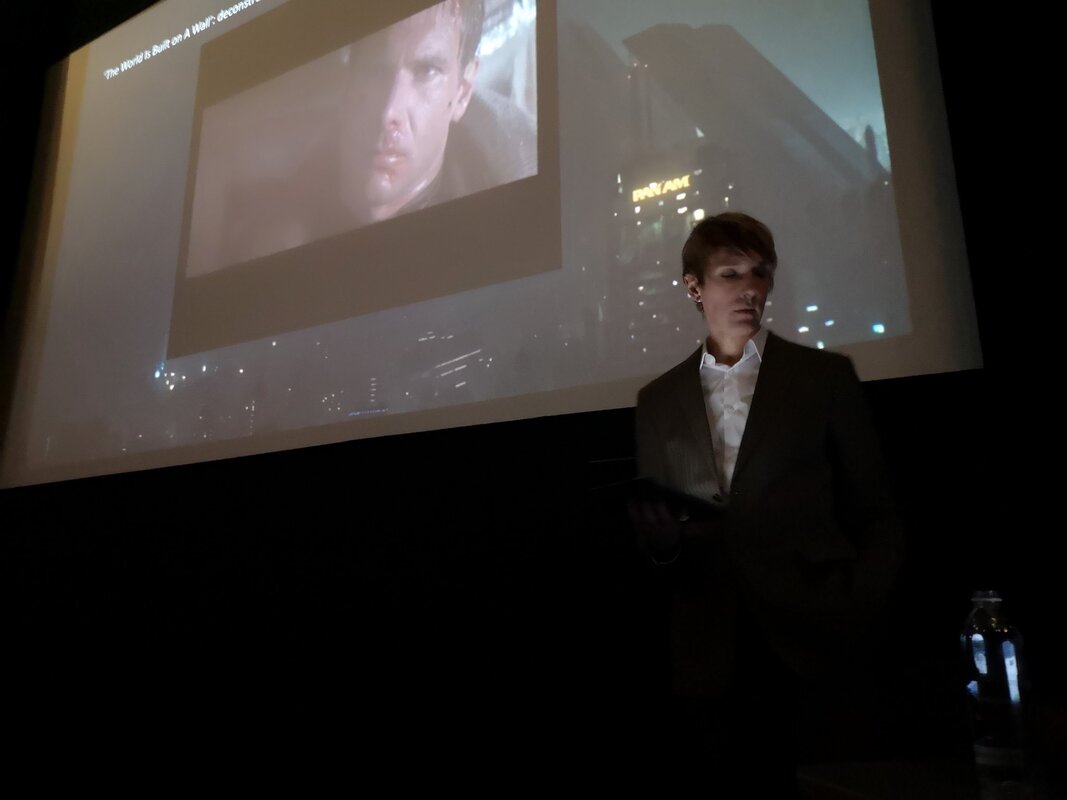
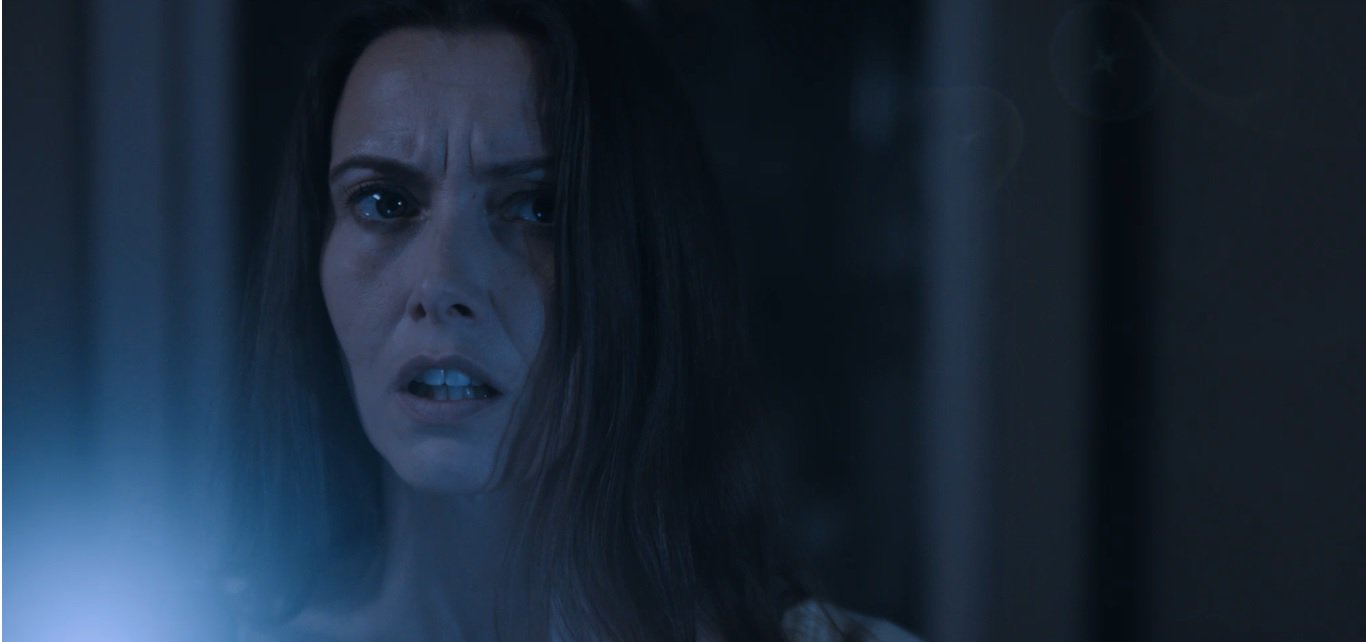
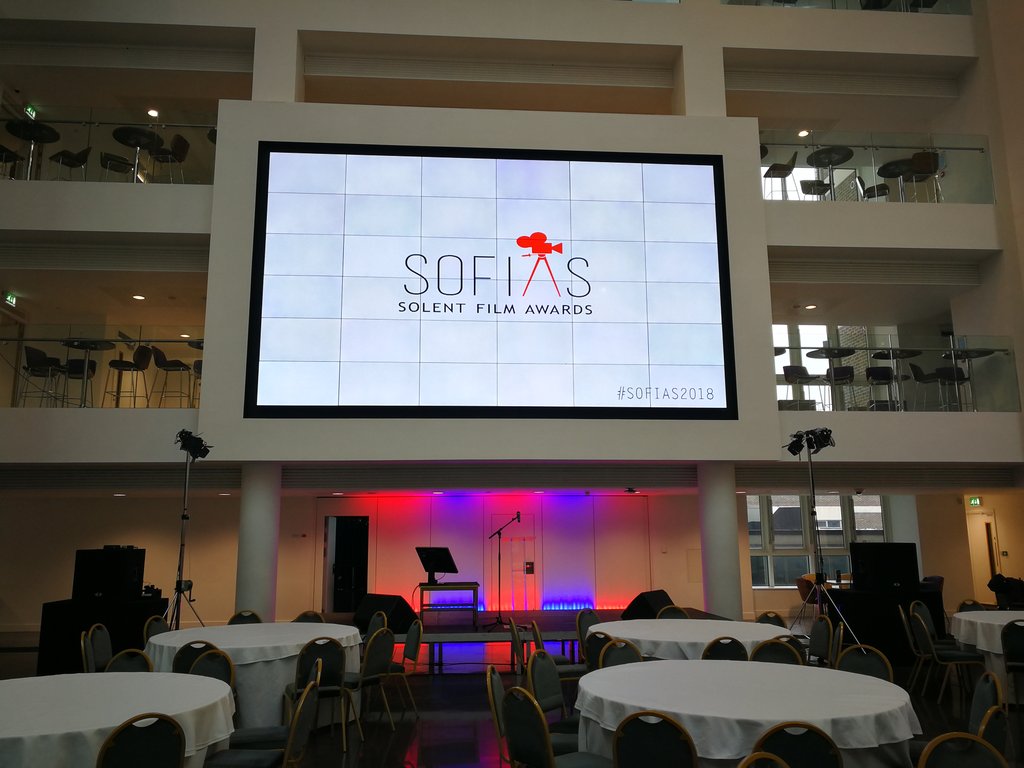

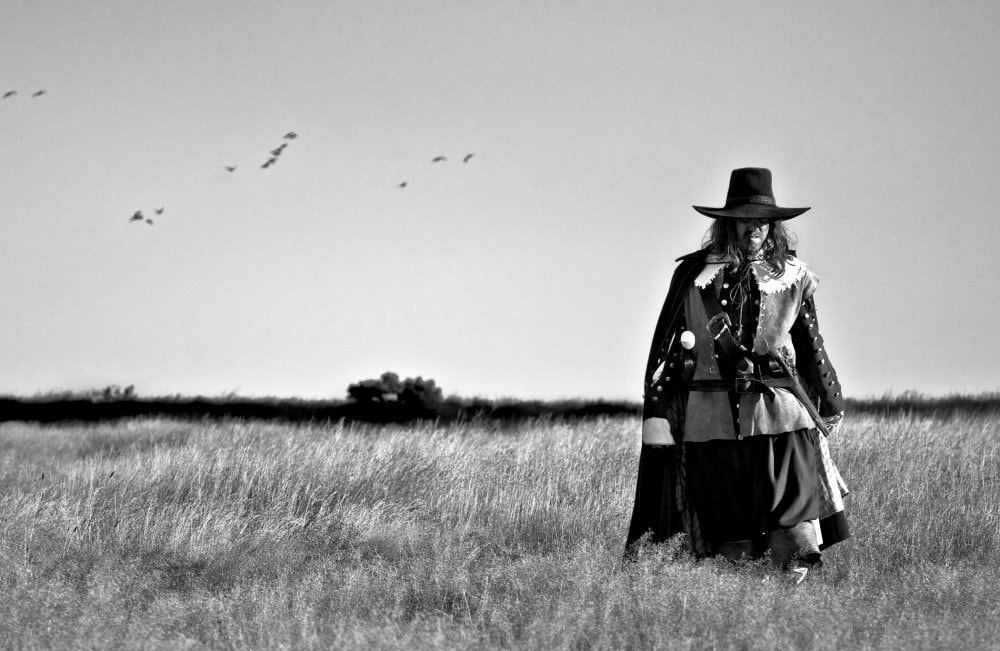

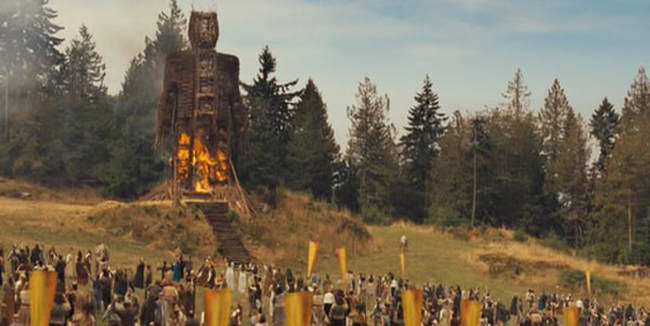
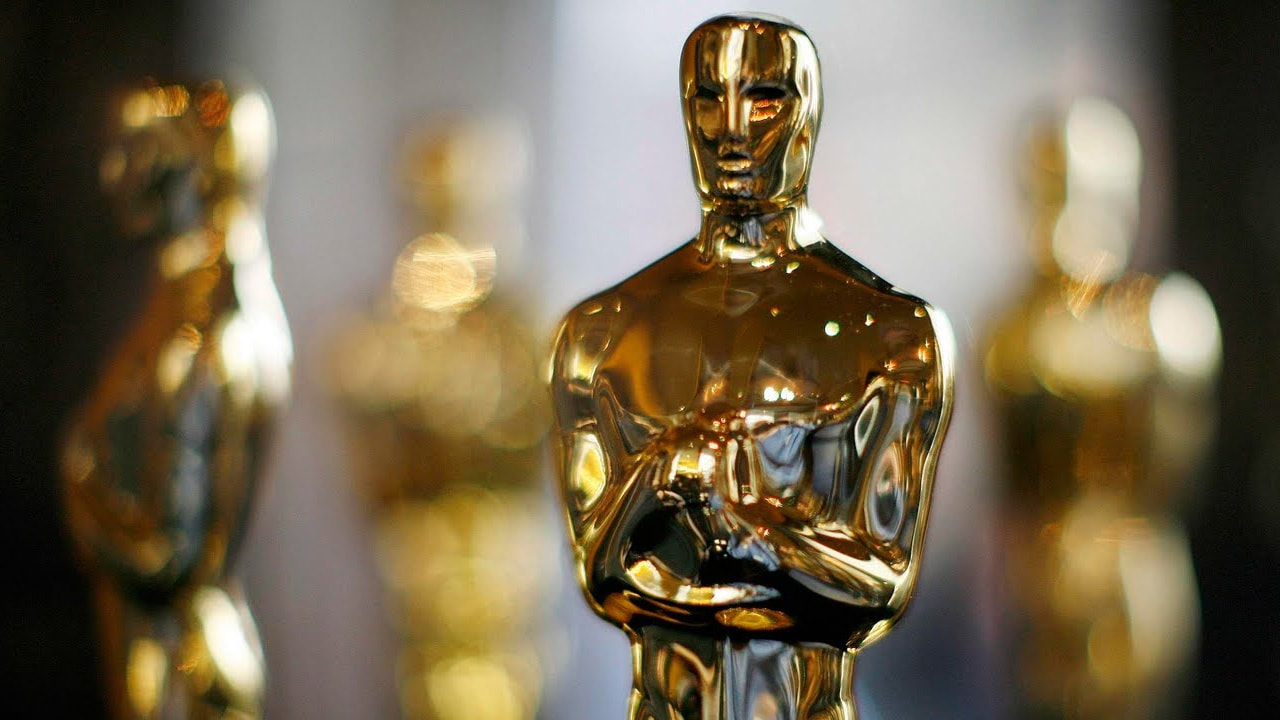

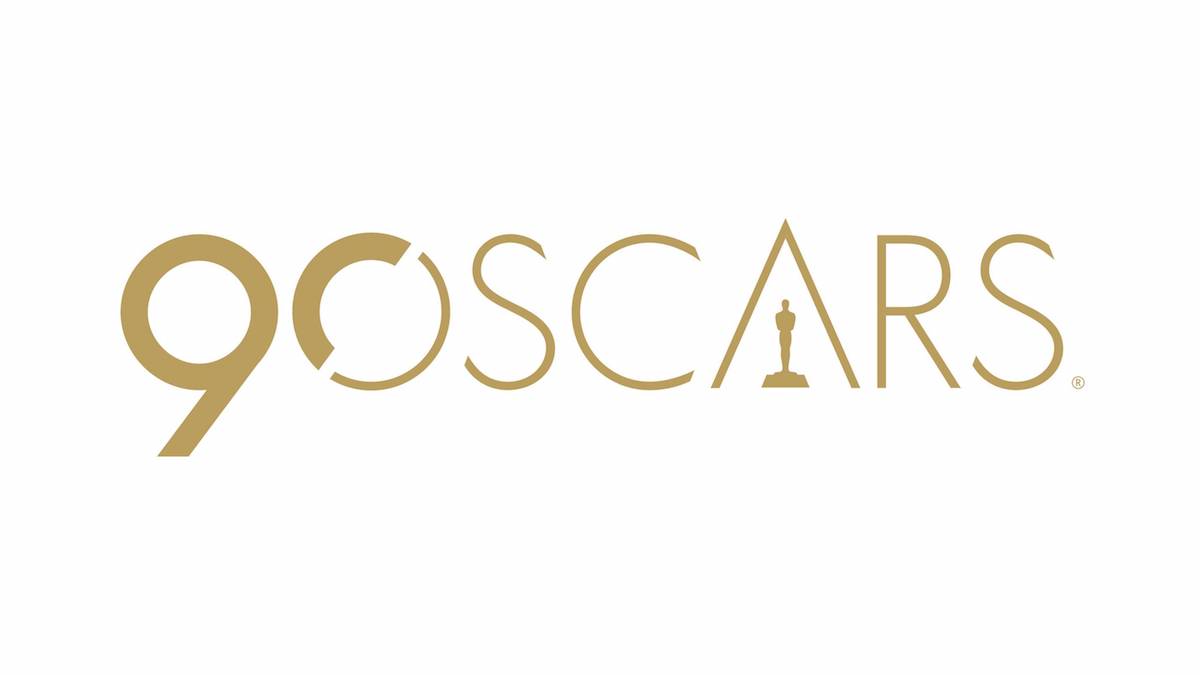

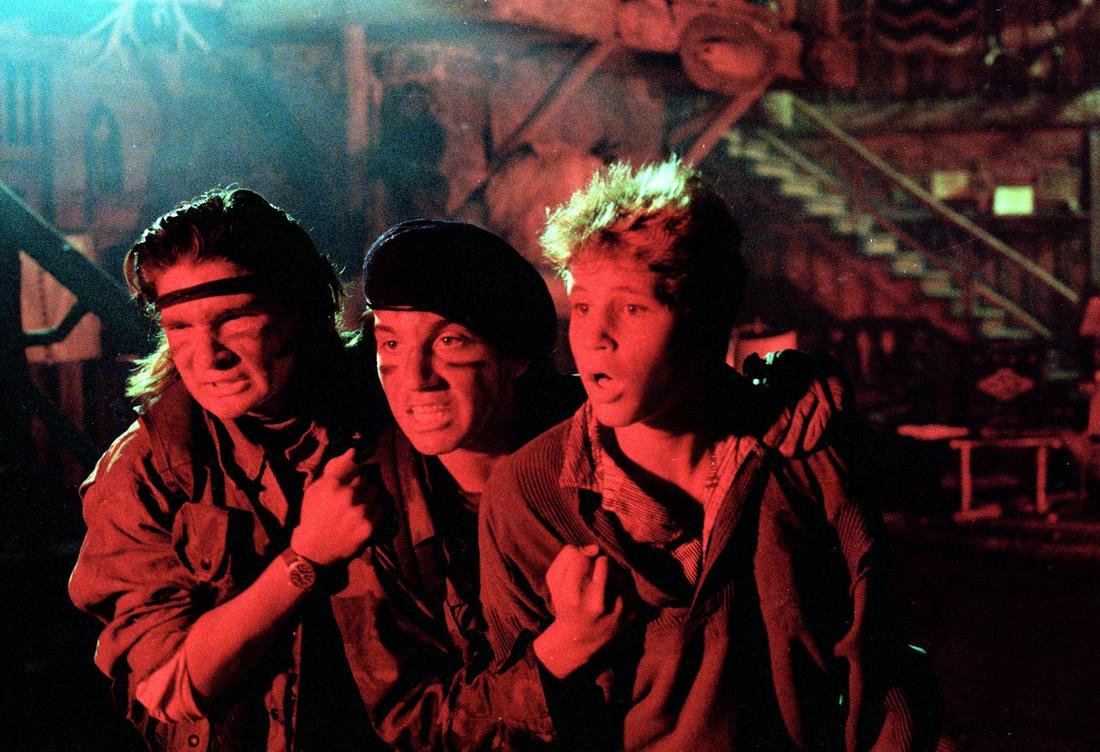

 RSS Feed
RSS Feed
